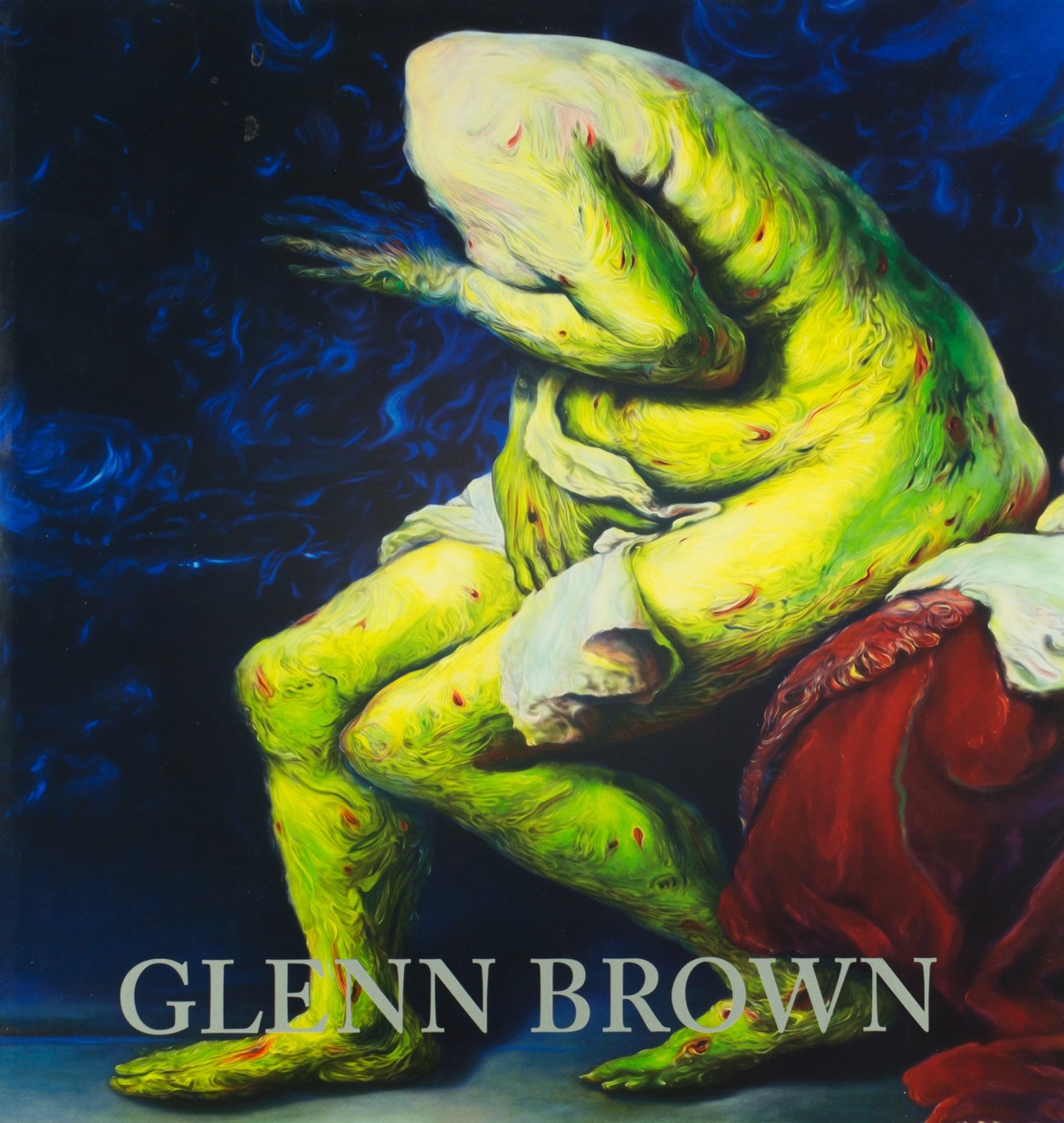Glenn Brown
Text by Jean-Marie Gallais, 2011
Publisher: Galerie Max Hetzler / Holzwarth Publications, Berlin 2011
ISBN: 978-3-935567-55-8
Dimensions: 29,7 x 31 cm
Exhibition catalogue produced in 2011 on the occasion of the exhibition
Glenn Brown at Galerie Max Hetzler Temporary, Bleibtreustraße 45, Berlin-Charlottenburg
8 April - 28 May 2011
Galerie Max Hetzler is pleased to present the fourth solo show ofGlenn Brown, featuring recent paintings and sculptures. The subject and scale of the seven paintings on display, such as portrait and still life, are classical genres of Western painting strongly associated with private spaces. Therefore, the intimate venue of Galerie Max Hetzler Temporary provided by an empty apartment in the residential area of Charlottenburg becomes the most suitable environment for this exhibition.
In Die grosse Nacht im Eimer or Almond Blossom, faces of eldery men seem distorted, the flesh and hair strangely shimmer with colours while the subjects appear immersed or absent. They are strongly reminiscent of portraits by old masters, to which is added a certain ambiguity, such as beauty and ugliness or life and death. In N***** of the World, a title which refers to a Yoko Ono and John Lennon song, a female figure recalls Susanne and the Two Elders. By making her face invisible, Brown explicitly draws the viewer's attention to the greenish and yellowish glimmering body of the abashed woman. She is placed against a dark blue backdrop that emphasizes the intriguing setting. The Life Hereafter after a Van Gogh painting depicts the common motif of flowers here presented in close-up – one could say – as a portrait, with colours and textures dissolving as if they were in the process of decay. The sculptures which underline his fascination with paint appear as three-dimensional paintings, being born out of thick strokes of oil.
Glenn Brown can be perceived as the ultimate Mannerist painter, perplexing the viewer with exaggerated or sometimes grotesque forms. Through his individual approach, the Mannerism reveals itself not so much as a time-based phenomenon but as a “timeless artistic and cultural disposition” (Katarzyna Uszynska). Michael Bracewell described Glenn Brown's paintings as a"spectacle" in which the artist creates an imaginary world and invites the viewer to join. In his paintings he refers, appropriates, questions and plays with artistic strategies from Renaissance till the twentieth century, creating a quite unique iconography. What also makes Glenn Brown's work so captivating, is his technical virtuosity. While he uses the traditional technique of oil on wood panel, under closer inspection his swirls of colour that appear at first glance to be impasto and expressionist, reveal themselves almost as trompe-l'oeil, a result he achieves with very fine brushes. Under this flat surface of paint, multiple layers of references, created in a complex process, spread out. Through his stunning manner and his lively dialogue with art history, Glenn Brown expresses a highly personal commentary on painting.
Glenn Brown, born 1966 in Hexham, Northumberland (UK), lives and works in London. In 2000 he was nominated for the Turner Prize. He had solo exhibitions in renowned institutions such as the Serpentine Gallery (London) in 2004, Kunsthistorisches Museum (Vienna) in 2008, Tate Liverpool, La Fondazione Sandretto Re Rebaudengo (Turin) in 2009 and Ludwig Museum (Budapest) in 2010. His work is represented in the collection of major museums including the Art Institute of Chicago, the Walker Art Center in Minneapolis and the Centre Pompidou in Paris.
